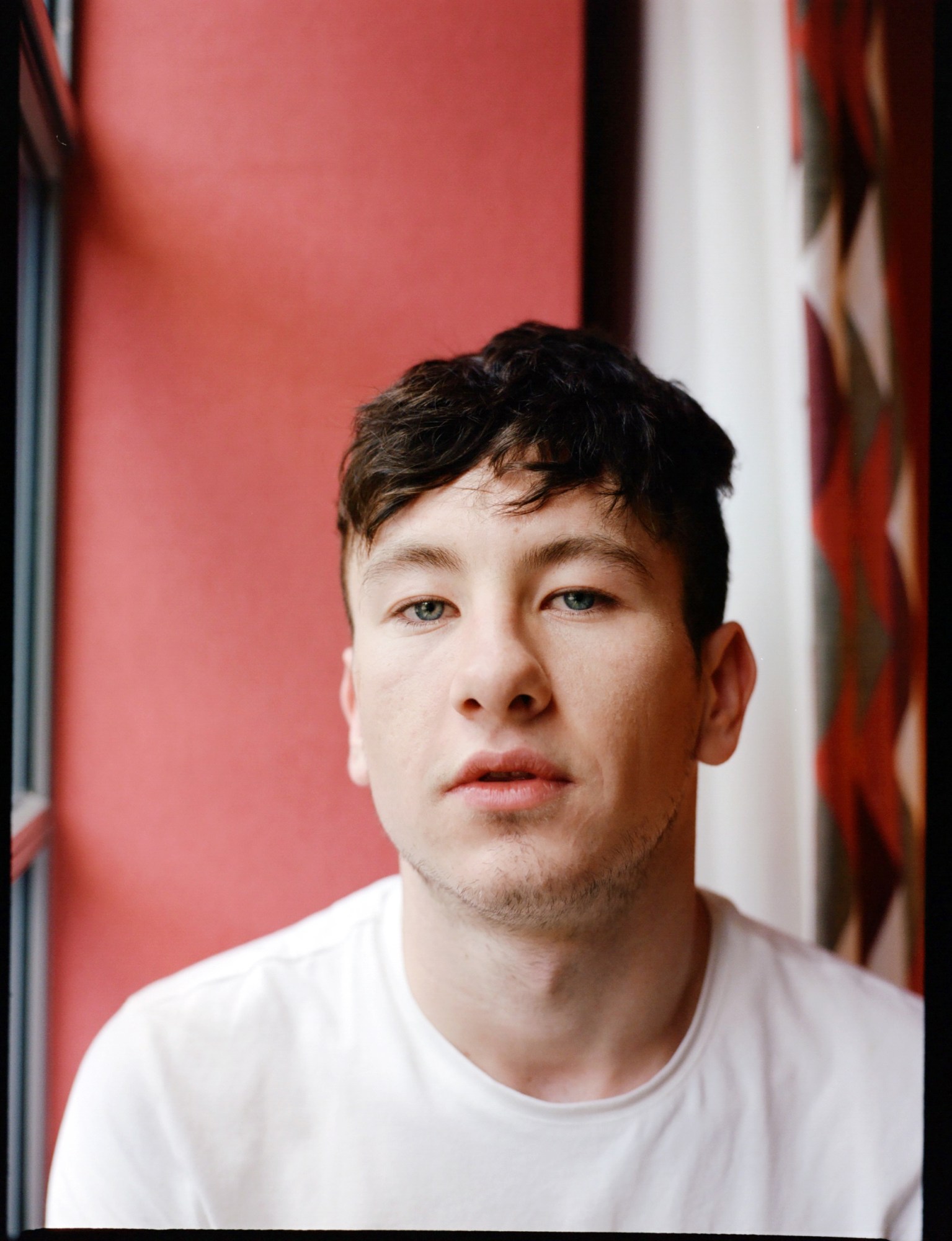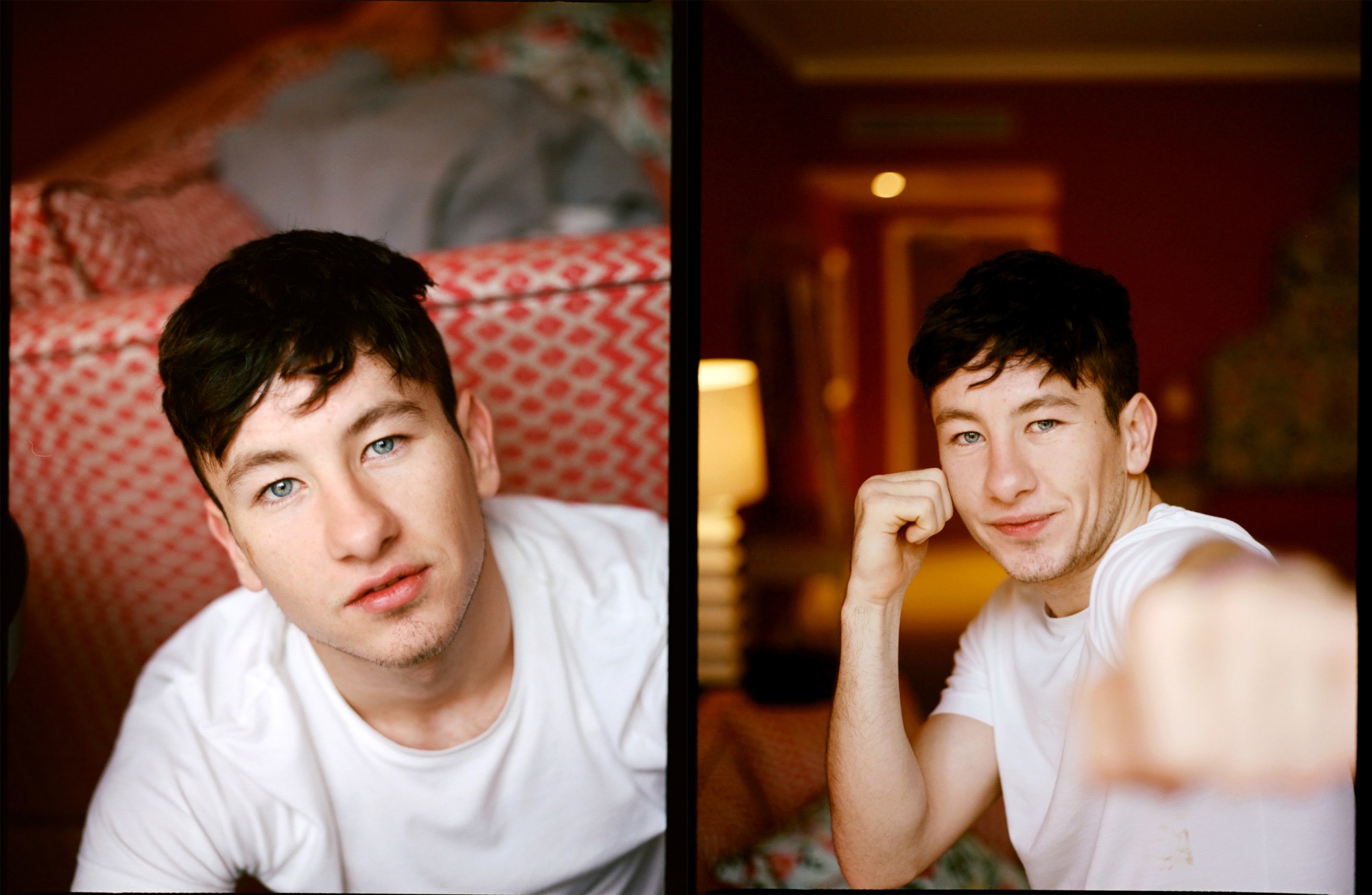If you haven’t heard of Barry Keoghan, don’t worry, you’re about to. In just a matter of months, the 25-year-old actor has gone from relative obscurity to mass critical acclaim, in no small part due to his role in big fat Hollywood blockbuster, Dunkirk, where he played the sweet natured boat boy who accompanies Mark Rylance on a heroic rescue mission in one of Christopher Nolan’s labyrinthine side plots. However, it’s his most recent role as the twisted teenage villain Martin, in Yorgos Lanthimos’s terrifying thriller The Killing of a Scared Deer, which has the whole of Hollywood talking.
Anchoring its story in the classical myth of Iphigenia, The Killing of a Scared Deer is a chilling tale of revenge and retribution; the subject matter made infinitely more horrifying by Lanthimos’s subtle style and almost fetishitistic preoccupation with the mundane.
Barry stars as the film’s antagonist, Martin, a quietly sinister kid who develops a dark and disturbing obsession with his late father’s cardiovascular surgeon, Dr Steven Murphy, played brilliantly by Colin Farrel. Like some cankerous parasite, Martin worms his way into Dr Murphy’s seemingly idyllic family life, befriending his unsuspecting wife Anna (Nicole Kidman), teen daughter Kim (Raffey Cassidy) and youngest son Bob (Sunny Suljic). So far, so unsettling. It’s only during the second act, when Martin reveals his Hunger Games-esque plot of death and destruction, that his truly horrifying intentions become apparent.

“I play a real menace, don’t I?” Barry laughs. Sitting before me in a dimly lit hotel room in Soho, Barry is nothing like his character Martin. First of all, he’s lot older, having just turned 25. He also has an incredibly thick Irish accent. Then there are his mannerisms: unlike Martin, Barry is constantly moving around, gesticulating, pulling punches in the air (he’s been training as a competitive boxer since he was a kid), cracking jokes with a crooked smile and a cheeky wink, and regaling stories with animated relish.
In the flesh he gives off an air of warmth, but as Martin, he is nothing short of terrifying. Because the thing about Martin is that he’s not your obvious villain. He’s mild-mannered, quiet and observant, but he’s also deeply disturbed, emotionally crippled and painfully awkward when it comes to social interaction. There’s an amazing scene where he’s eating spaghetti in his boxers, tomato sauce all over his face, reminiscing about how his father used to eat spaghetti, as Nicole Kidman’s character pleads for her life. It could have been quite touching if it weren’t for Martin’s blank face and monotonous voice — totally devoid of emotion — followed by the bit where he describes his disappointment, disgust even, at finding out that, actually, his father ate spaghetti just like everyone else.

“For Martin I wanted to play him as being very straightforward,” Barry explains. “I looked at a lot of documentaries about kids and their behaviours. When they’re putting together jigsaw puzzles, they’re so focused, and totally unawares of the camera. I wanted to make Martin very present in every scene he was in, I wanted to make you feel like you’re there with him.”
But beyond mere physical features and fine acting skills, beyond all his research, the seamlessness with which Barry is able to navigate Martin’s darker character traits and inner turmoil suggests some kind of first-hand experience. Which makes sense when you’ve had a childhood like Barry has. Growing up in a somewhat downtrodden part of Dublin, Barry lost his mother to a drugs overdose when he was just a kid. Over the next few years he and his brother were shuttled between foster homes, until eventually they went to live with their grandmother.
“My granny is a huge part of my life,” says Barry, breaking into a huge grin. “She’s lived in council flats for the last fifty or sixty years. She’s raised ten children there, and hasn’t moved.” All the tenderness and emotion that Martin lacks, Barry has in abundance, especially when talking about his family. “Growing up, there was a really big sense of community across all the flats. You’d knock next door if you needed sugar or milk.”

A mischievous kid, Barry and his brother would run around the block wreaking havoc wherever they went — “We flung frozen fish nuggets through all our neighbours’ windows.” And like those fish nuggets, his outlook on life is optimistic. “I think going through everything has made me strong,” he muses. “Like, if something bad happens, I’m just like, ‘Oh whatever.’ Especially in the acting game, there is a lot of tippy-toeing, a lot of divas, but I just feel blessed, I’m grateful for everything I have, because it’s so much better than what I ever expected for myself.”
He was also a bit of a daydreamer. “I was always the one with the imagination,” he says wistfully. “I knew that was going somewhere, I knew I had to go somewhere. So when I came across this flyer for an open audition in a window one day, down in the shop near where I lived, I just took the number and rang it. I was only 17 and had never acted before, but I was just like, ‘I can do that. I’m a good liar, I know how to lie and pretend.’ I get away with trouble all the time, so I knew I could do it.” It did the trick, and Barry ended up getting a small role on the independent Irish movie Between the Canals. After that, he landed a small part in another Irish film, got himself an agent, and the roles started rolling in.

At first acting was just a means to an end. “I started getting all this money,” says Barry. “They were paying me and feeding me. That’s when I knew it was something I could do.” For someone so exceptionally talented, to hear him say he was only in it for the money comes as a bit of a shock. But Barry reassures me that all this changed when he started discovering all the old movies with Paul Newman and Marlon Brando. All he wants to do now is work on his craft. Who does he look to for inspiration? “The way Leonardo DiCaprio transforms himself into another character, I find that fascinating. He doesn’t even seem like himself. That’s what I love about acting, being someone completely opposite to me but always showing a little bit of yourself, too.”
But it’s much more than that. For Barry, acting allows him to access and in turn work through a lot of suppressed feelings from his childhood, that he hasn’t been able to express in real life as Barry. “I get to talk about my personal stuff but do it in character,” he muses, “because I’m not brave enough to talk about my feelings in real life. Once you get given a name and different identity, it’s like you’re allowed to be sad, angry or happy. Whereas if it’s me, I tend to wear a guard and protect myself.”
Since its release, reviews praising Barry’s performance have been pouring in. There’s even talk about a potential Oscar nomination. Is he worried about fame changing him? “Yeah, if I start hanging out with all the stars,” he laughs. “But it’s not in me to do that though. It’s all very nice and good to get recognition and have people genuinely tell you you’re great and that they like your work, but I can see how it ruins people.” With a strong head on his shoulders, I can’t see that ever happening to Barry. Besides I’m not sure his nan would allow it.
The Killing of a Sacred Deer is in cinemas now.
